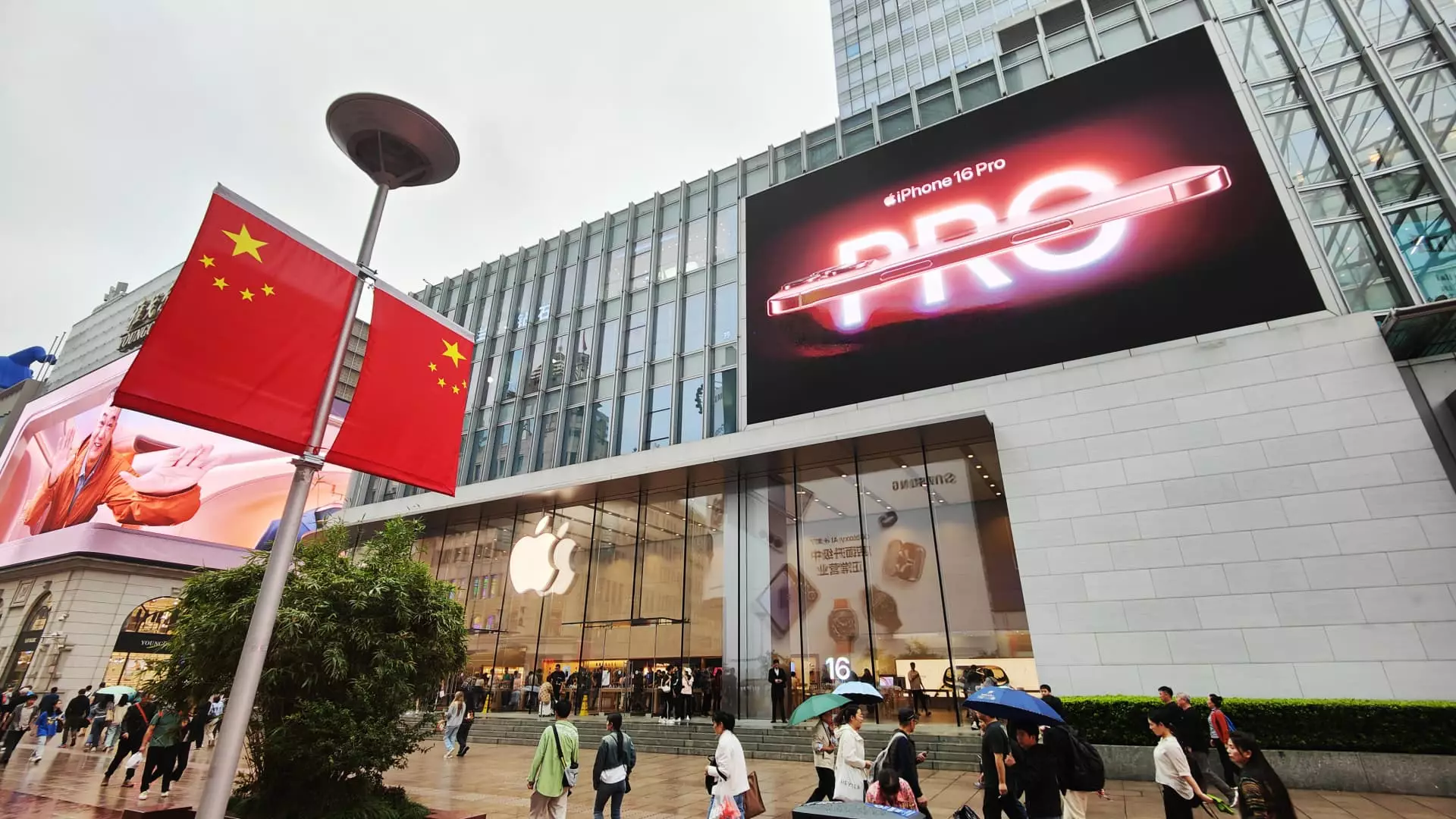Recent reports indicate a significant decline in the sales of foreign smartphone brands within China. According to data from the China Academy of Information and Communications Technology (CAICT), shipments of devices from foreign manufacturers realized a stark drop in November, falling to just 3.04 million units. This figure marks a staggering 47.4% decrease compared to the same timeframe in 2022, and a 51% reduction from the preceding October. Such drastic numbers profoundly emphasize the extent of the challenges that foreign brands, particularly Apple, face in maintaining a foothold in one of the world’s largest and most competitive smartphone markets.
While Apple historically dominated the foreign market segment, this decline can largely be attributed to the resurgence of domestic brands, particularly Huawei. Once hampered by U.S. sanctions affecting its operations, Huawei has made a robust comeback by launching a series of high-end smartphones that have clearly resonated with the local consumer base. As per the latest research data from IDC, Huawei’s growth trajectory has significantly outpaced that of Apple, showcasing the shifting dynamics in consumer preferences and the fierce competition within the smartphone sector.
In an attempt to reclaim its status and market share, Apple has rolled out its latest iPhone 16 series, which boasts numerous new features, including advancements in artificial intelligence through its Apple Intelligence software. However, Apple’s progress has stalled due to regulatory hurdles regarding AI technology in China. These complexities prevent the company from unveiling its software capabilities in a timely manner, giving local competitors an advantage as they promote AI features that are already integrated into their devices.
Moreover, the urgency of addressing these challenges is amplified by the fact that Apple’s CEO, Tim Cook, has made multiple visits to China, emphasizing the importance of strengthening partnerships and collaborations in the region. Such visits underline Apple’s acknowledgment of the need to foster local relationships, particularly in light of governmental and market-related challenges that foreign brands encounter in China.
As part of its strategy to boost sales and rekindle interest in the iPhone 16 ahead of the Lunar New Year, Apple has decided to introduce discounts on the device. This approach is indicative of the company’s recognition of the pressing need to adapt to consumer demands in an increasingly competitive landscape. The year ahead will likely unfold as a critical period for Apple, where its ability to innovate and effectively communicate its technological prowess could determine its success or failure in the Chinese market.
The current landscape for foreign smartphone brands in China poses considerable difficulties, especially for Apple. As domestic brands gain momentum and consumer loyalty, Apple must navigate regulatory challenges, foster local partnerships, and refocus its market strategy to remain relevant. The outcome of these efforts could not only impact Apple’s position in China but also reflect broader trends in the global smartphone industry.


Leave a Reply
You must be logged in to post a comment.